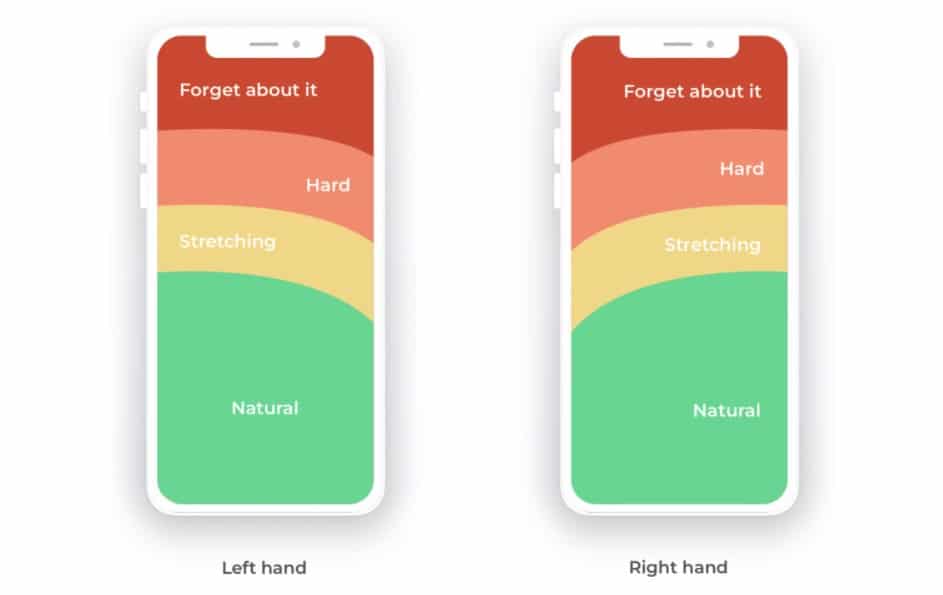We did this back in 2018, and we have returned to give you some 2020 year-end recommendations! New Years is a time to both reflect and look forward, so that’s just what we hope to do with this collection; reflect on the (industry-related) things we found most interesting, informative, or thought-provoking, and look forward to how we might put what we’ve learned into action, next year and in the years to come.
Check out our favorite topics from the worlds of the Internet, Web Development, Design, Digital Marketing, SEO, PPC, and Analytics.
re: The Internet
How green was my Internet?
Not very. It’s easy to think of digital as being green and not polluting at the same level as physical things in our lives, but the environmental impact is huge. This article brings to light how big of a problem this is and how unaware many of us are of the issue.
Read: The Hidden Cost of Digital Consumption
No, you’re the puppet.
Which of your tastes, thoughts, and habits are really yours, and which were put there by an algorithm? This podcast from the NYT dives into the “echo chamber effect,” and the potential large scale implications.
Listen to: Welcome to the ‘Rabbit Hole’
re: Development & Design
Do you have a pulse?
This year, Google introduced a new set of guidelines to “help quantify the experience of your site and identify opportunities to improve.” Called Core Web Vitals, these are three simple user experience metrics that focus on loading, interactivity, and visual stability. In May of next year, they’ll start affecting search rankings.
While there’s no doubt Google collects an unsettling wealth of UX data, providing Google Search Console users with Core Web Vitals appears to be a step in the right direction toward democratizing some of that wealth… or (more likely) they’re just throwing us a bone. At the very least, our team was excited to get confirmation that our user-experience advocacy is, in fact, good for SEO.
Read: Introducing Web Vitals: essential metrics for a healthy site
Bringing app design to websites
Thumb-menus on mobile sites grew increasingly popular this year, as ease-of-use has arguably become the main tenet of web design. The “thumb chart” below (credit) pretty much explains it all.

Some examples of thumb menus we saw this year include:
- Quartz – qz.com
- Pitchfork – pitchfork.com
- Sephora – sephora.com
- Pilot Digital – if you’re reading this on your phone, just look down!
re: Marketing
Demystifying “content marketing”
James Buckhouse put together a guide “to transform the mysterious art of content into a repeatable and measurable process.” It’s a really engaging read with some fun tips:
Please reserve massive for items that contain much mass (like an elephant or Mt. Rushmore). Also, note that masterful means forceful, not masterly.
Fun, see?
Read: Towards Exceptional Content
Who’s Brandon? Ohhhh, you mean “Branding!”
Through some of the partnerships Pilot has built over the last couple of years, we’ve been learning more and more about the importance of branding, and its impact on marketing and sales. This article does a good job explaining how the worlds of branding and digital marketing can—and should—intersect.
Read: Why SEOs should care about brand
re: SEO
Optimizing for keywords is moving closer and closer to obsolete as an SEO strategy.
Arguably the biggest shifts in Google’s search algorithms in 2020 were focused on their understanding of language. Google can read the language on your webpage just about as well as any human can… so if keyword optimization isn’t already dead, you can bet there’s a 6-foot hole in Google’s backyard with its name on it. Where does this leave SEO? It means that optimizing for the user—not the search engines—is of the utmost importance.
Read: What passage indexing and natural language processing mean for the future of SEO
How, then, do you optimize your content?
Jason Barnard from Search Engine Journal wrote a great article in October explaining how he believes one can best do SEO in the modern era.
Ensuring that Google understands: 1) What your solution is. 2) That you are the best provider when compared to all equivalent solutions. 3) That the format is the most appropriate for its user in their context.
He goes into much greater detail on this three-step process in the article, and we loved it because it really reflects Pilot’s SEO philosophy!
Read: SEO in a Nutshell: Understanding, Credibility & Deliverability
Local SEO is increasingly competitive. How do you get ahead?
BrightLocal, titans of the Local SEO industry, put together a well-rounded view of Local SEO in 2020, sharing strategies that have a positive (and negative) impact on listings.
Read: Local SEO Ranking Factors 2020
re: PPC
Use the force, Luke.
The force of AI, machine learning, deep learning, and neural networks, that is. As automation and predictive AI become standard across marketing platforms, understanding how these systems work is key to optimizing PPC campaigns.
Read: Welcome to the Predictive Marketing Era
Privacy concerns could eventually change the way we advertise. Might it be a win-win for consumers and advertisers alike?
This article tells the story of Nederlandse Publieke Omroep (the BBC of the Netherlands) using a contextual advertising system to serve ads based on the content of the article a user is reading, instead of Google Ad Manager’s cookie-based system that serves personalized ads to individual users.
If the Google study was right, then NPO should have been heading for financial disaster. The opposite turned out to be true. Instead, the company found that ads served to users who opted out of cookies were bringing in as much or more money as ads served to users who opted in. The results were so strong that as of January 2020, NPO simply got rid of advertising cookies altogether.
It’s an interesting article that made us think about where digital advertising might eventually trend toward, especially as the fervor around online privacy grows in places other than Europe.
Read: Can Killing Cookies Save Journalism?
re: Analytics
Google Tag Manager’s debugger gets a facelift
If you’ve ever used Google Tag Manager, you know how important the preview mode/debugger is in tracking down why your tags aren’t firing properly. It’s arguably where we spend the most of our GTM time. While not a drastic change, Google’s new and improved Tag Assistant Preview Mode is… slightly new, but much improved.
Google Analytics and Tag Manager maestro, Simo Ahava, put together a nice guide for anyone trying to learn the new ropes.
Read: Tag Assistant Preview Mode in Google Tag Manager
Potpourri
Pilot’s North Dakota office… coming soon?
ProPublica and the New York Times put together a report based on new data from the Rhodium Group that estimates how climate change will affect different areas in the United States over the next 20 years, 40 years, and beyond. Search any county in the USA to view probable conditions of the following:
- Heat & humidity
- Farm crop yields
- Sea level rise
- Large fires
- Economic damages
The data is equal parts fascinating and horrifying, but we were also impressed by the web experience they put together. North Dakota farmers, rejoice?
Experience: New Climate Maps Show a Transformed United States
The battle cry of the decade.
Bad Boy of Bowling, Pete Weber, celebrated his fifth US Open victory in 2012 by pushing the envelope in terms of asking rhetorical questions. No longer must we leave rhetorical questions lingering; Pete showed us how powerful it is to answer them ourselves. To use an analogy from a different sport, Pete threw it off the backboard to himself and slam-dunked this battle cry:
Who do you think you are? I am!



